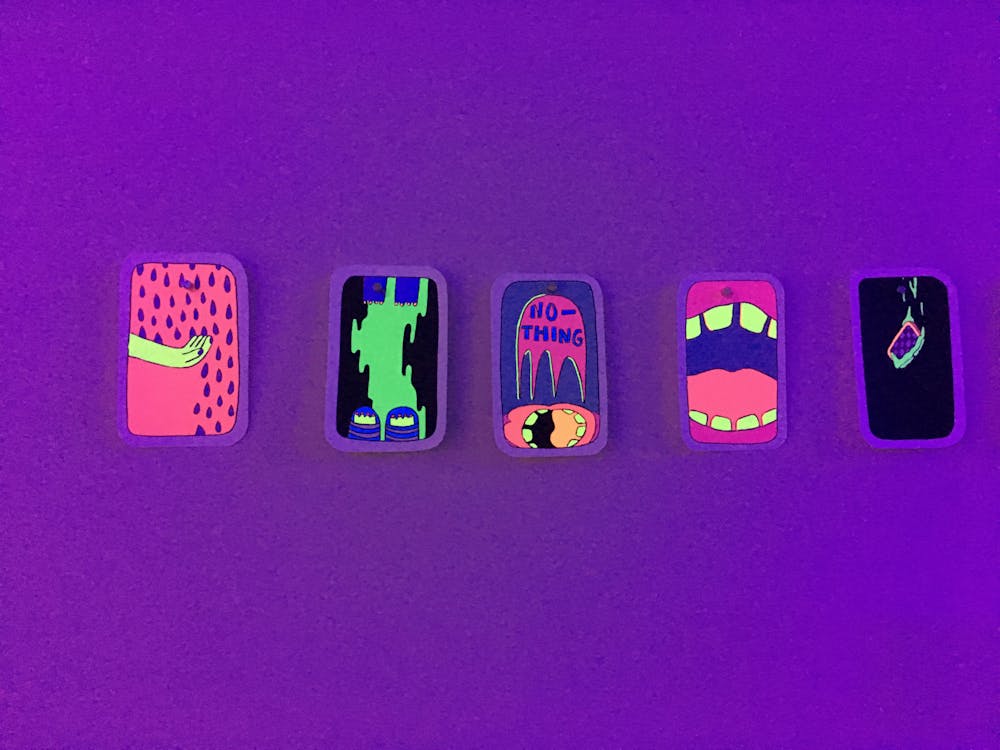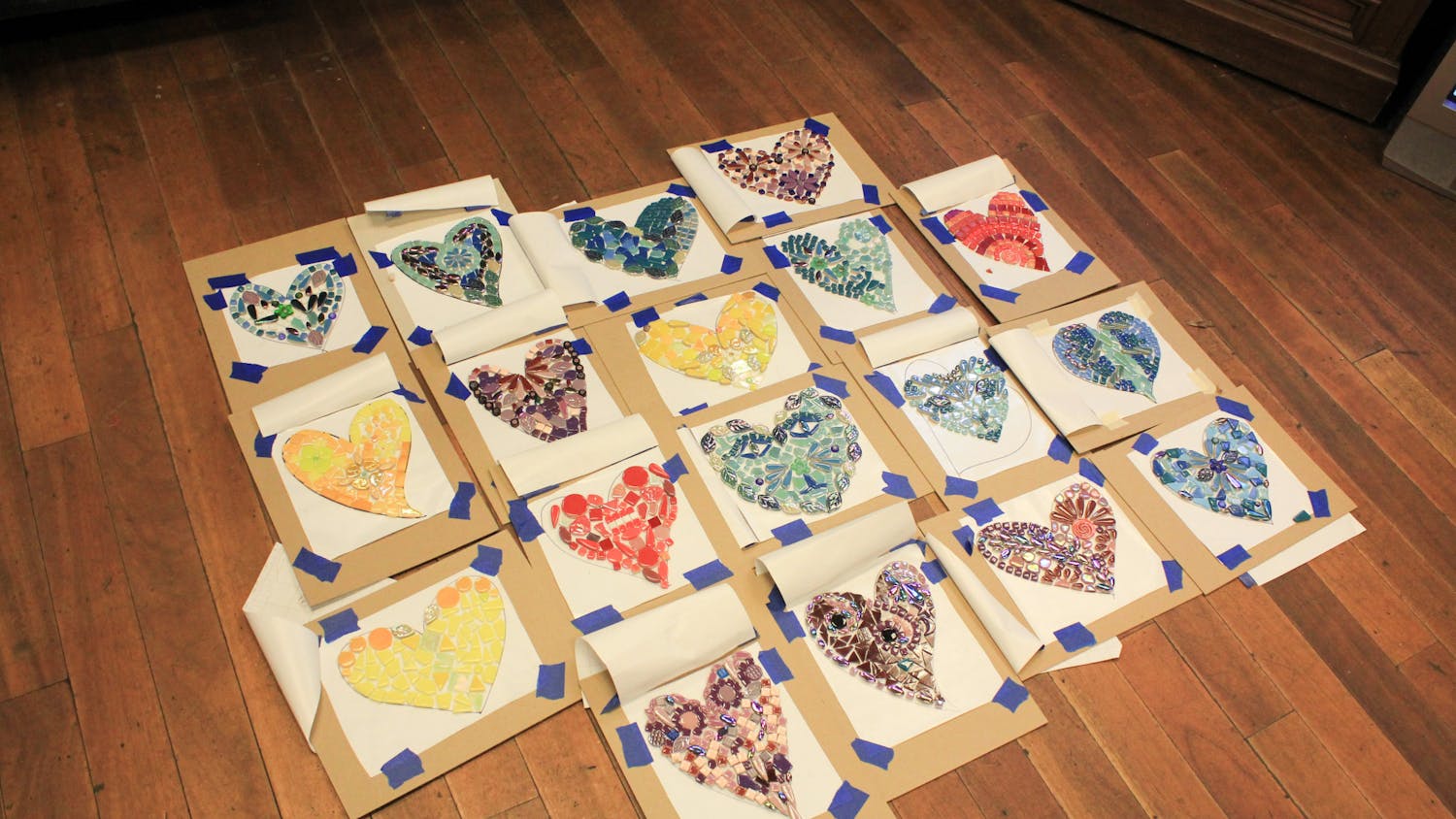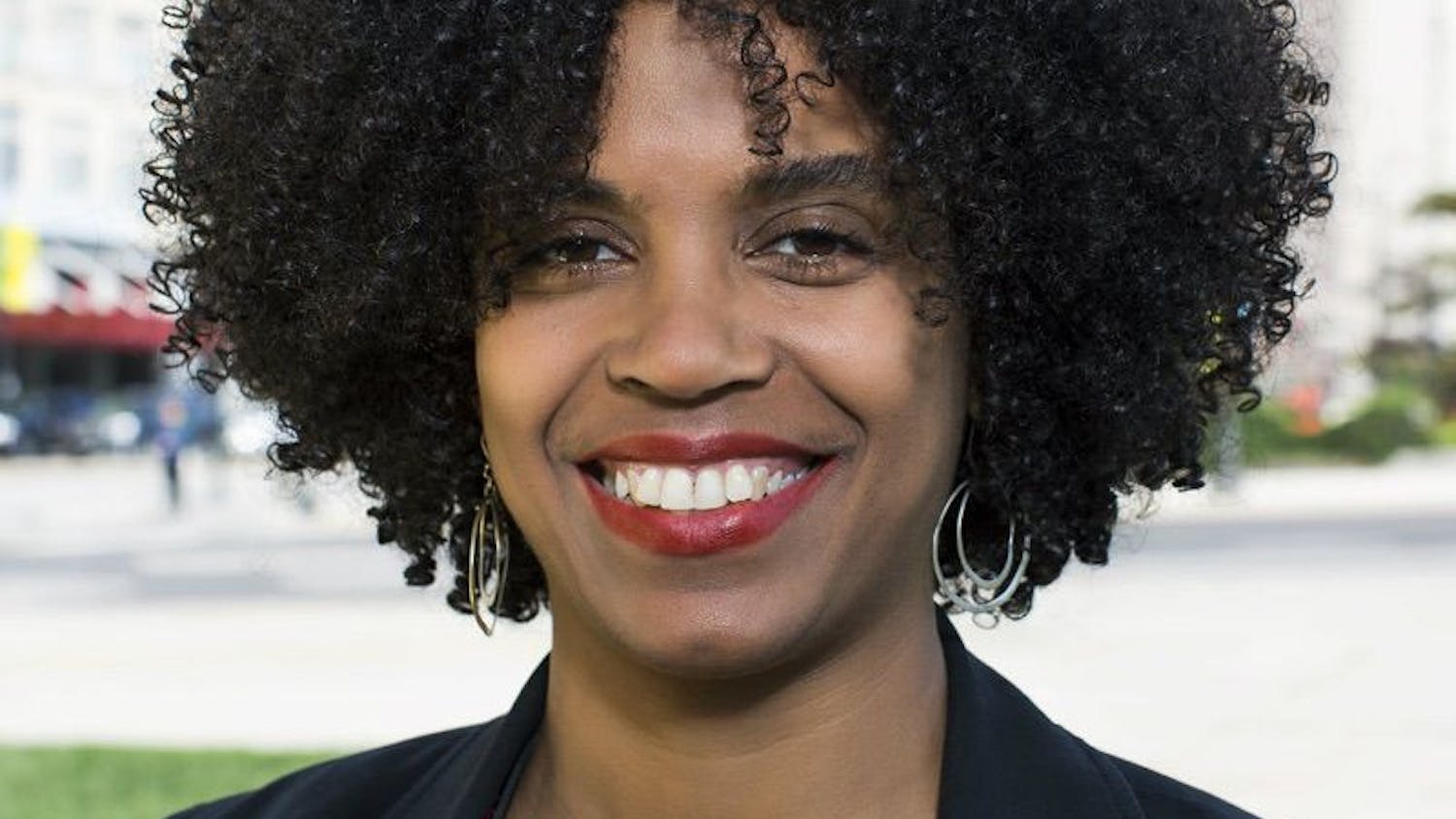Marina Sachs saw sobriety as an experiment, and art came as a byproduct.
UF Grad student Marina Sachs’ MFA thesis project, titled “IF NOTHING CHANGES” examines addiction. The exhibit was broken into a series of events that took place in UF’s Libby Gallery between Aug. 27 and Aug. 30.
The project featured an art show, a series of curated events and an overall body of work reflecting Sachs’ first year of sobriety. The main pieces showed introspective phrases on pieces of colorful foam. Sachs described the project as an “anti-gallery” show meant to highlight the importance of community and bring people into the conversation surrounding sobriety.
“This is not one of those art shows that I created to highlight something that I am good at doing,” Sachs said. “The reason why I’m calling it an anti-thesis is because I’m bringing all of these people into this thing that’s supposed to be this individual marker of my graduate success – and I just don’t believe in that at all”
In the spirit of accessibility and anti-elitism, Sachs made all the pieces in the exhibit from recycled or easily acquired material. Sachs explained that they didn’t buy any of the materials used in the project at art stores.
“It is definitely anti-elitist,” Sachs said. “I want to make art that people can also make themselves.”
Through collaboration with different artists and scholars, Sachs brought a sense of community into spaces that often serve to showcase individuality. Instead of simply showcasing talent and artistry, Sachs focused on accessibility and community to guide the project.
“Marina is someone who will always include community in their work,” Sachs’ sister and project collaborator Milan Sachs said.“It’s part of who they are and part of what makes their work so rich and so exciting to be part of.”
“IF NOTHING CHANGES” is the first of Sachs’ two MFA thesis shows, with the second one happening in October in the city of High Springs.
Sachs explained how the work plays with the idea of multiple realities and the separation of the sober self from the addict self.
“There’s another Marina, and that Marina lives in this world that these things come from,” Sachs said in the project’s artist statement, which they published through an audio file on Soundcloud.
The recording features fractions of a conversation between Sachs and their sister Milan and an ambient backing instrumental.
“In my mind, addiction has been fantasized and it’s perfect and it’s colorful and it’s beautiful, but the reality of it is very dull and very small and very boring, so the work is also a metaphor for that,” Sachs said in the artist statement.
With colorful fluorescent pieces presented under neon-colored lights, Sachs aims to reflect the distorted reality that people in active addiction perceive.
“Addiction is super chaotic and super awful, but also like it’s not all bad or else we wouldn’t stay in it so long,” Sachs said. “My addiction tells me I’m the only person experiencing this feeling of being so alone in a room full of people, and the antidote to those mental health challenges or addictions I think is developing deep connections with people that also share those similar experiences.”
The colorful aesthetic of the project also partly hopes to increase accessibility to conversations regarding addiction and mental health without coming from a detached place.
“So much of the messaging around addiction and mental health is about not being alone,” Sachs said. “But there’s something about it that’s very sterile and very removed, especially for folks of color, for queer folks, for trans folks, and for people whose experiences are not cis, white, heteronormative or for someone that doesn’t have a cellphone because they’re spending all their money on cocaine.”
Sachs’ weekly Instagram Live talk show SOBERBABY also focuses on sobriety and the social connotations of addiction. Through open conversations about the struggles of addiction, Sachs tries to say the things they wish they could tell their past self.
“I’m doing it to let a past a version of me know that you can get sober and you can save yourself like 20 years of misery,” Sachs said. “If I had that when I was fifteen and couldn’t get out of bed and so depressed, and I could just turn on this video and listen to these two people talking, I don’t know what would’ve happened.”
Contact Kristine at kvillarroel@alligator.org. Follow her on Twitter @ktnedelvalle.
Kristine Villarroel is a UF journalism senior and The Alligator's Summer 2023 Engagement Managing Editor. She previously worked in the Avenue and Caimán desks as an editor and reporter. In her free time, she looks for dusty fur coats at antique shops and pretends not to be a hater on Twitter.






